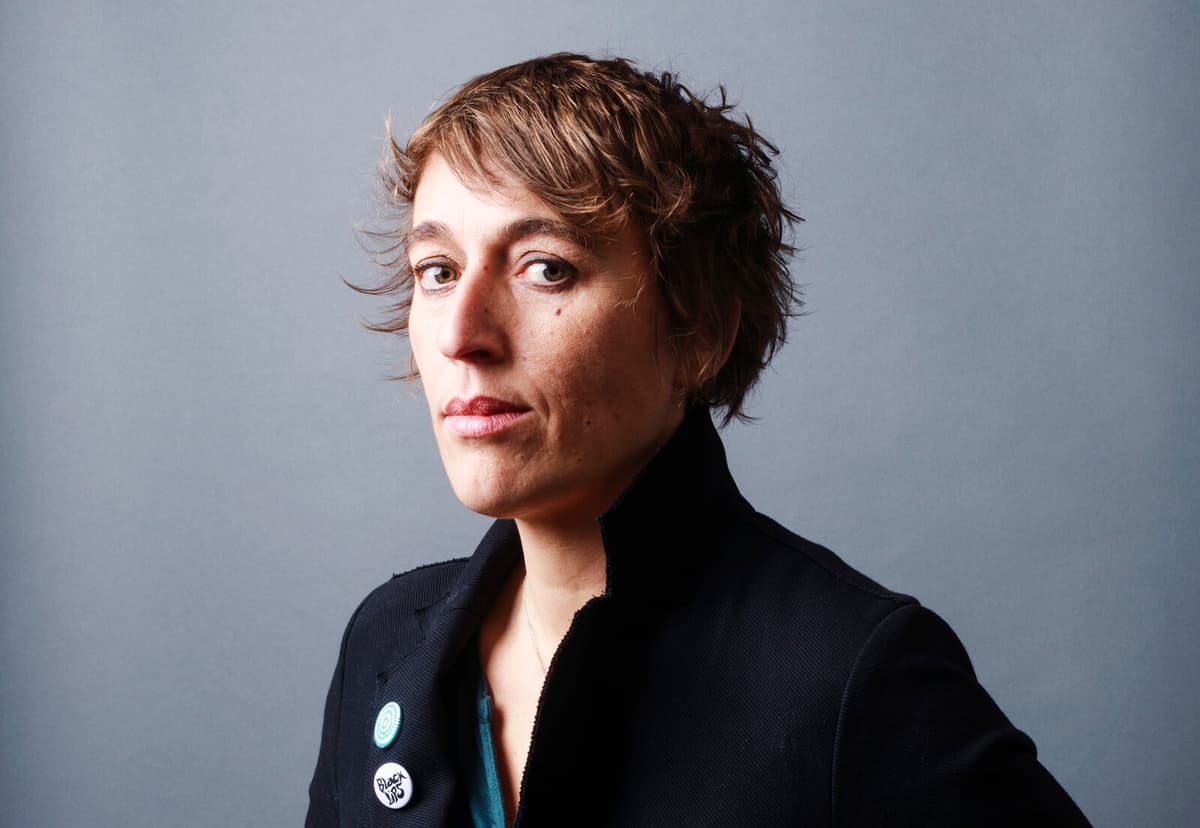Marion Brunet was woken up by the phone call from Stockholm on Tuesday morning:
I'm a sleepyhead. This is perhaps the most beautiful wake-up call I've ever had in my entire life. I'm extremely proud and happy, I have a hard time believing it, she says on the phone to TT from her home in Marseille.
She was just happy to be nominated and couldn't imagine that she would receive the prize.
For me, it's the Nobel Prize for young people's literature. It's the most beautiful prize that exists. I'm incredibly proud, I'm surrounded by great young writers and then I get it?! It's crazy.
Was a special teacher
This year's recipient of the Astrid Lindgren Memorial Award – worth five million kronor – was born in 1976. For 15 years, she worked as a special teacher for children and young people who had been sentenced to foster care and for young people with psychiatric diagnoses.
It gave me much more than stories – I haven't used these stories – it gave me a gaze, a gaze that isn't judgmental.
She wrote in parallel and has now published around 15 works, most of which are young adult novels. Social vulnerability, violence, but also climate crisis and young people's anxiety about the future are recurring themes in her books.
The newspaper Libération summarizes her themes as "people in trouble" in short:
It comes from the social unrest I feel, my sense of injustice, it's simply a part of who I am.
Jury chairman Boel Westin describes her as "a radiant storyteller of young people's living conditions in an increasingly materialistic and threatening world".
She lands precisely in our time, but also connects with an older adventure tradition, says Westin.
According to the jury, Brunet writes almost thriller-like and with an occasionally "raw realism where every detail becomes significant". Her style-secure prose is described as "crystal-clear and shimmering".
Corrupt leader
The trilogy "Ilos" takes place in 2052 – a dystopia based on ancient myths, where the heat and climate crisis have made several places around the Mediterranean uninhabitable and where a corrupt leader rules. Marion Brunet's hometown, Marseille, is largely buried, and the young main characters dive into luxury villas, searching for valuables to sell. Brunet is not yet translated into Swedish and thinks that "Ilos" could be a good place to start.
The prize money then? What will she do with it?
I love Brittany. I think I might be able to buy a place there where I can write with a view of the sea. I think it will be something for my writing.
Facts: Marion Brunet
Born: 1976 in Vaucluse, France
Lives: In Marseille
Career: Debuted in 2013 with the young adult novel "Frangine" ("Sister"), a story about a sibling pair with two mothers and where the daughter is exposed to homophobia. Has since published around 15 works, all from dystopias and thriller-like books to stories with elements of fantasy.
She has primarily written young adult novels but also adult novels and books for younger children. Her two latest works were published in 2024, the second part of the trilogy "Ilos" and the novel "Nos armes".
In France, she has received the most attention for "Plein gris" ("Helgrått"), a claustrophobic story about young people who go on a disastrous sailing trip from Brittany to Ireland.
Marion Brunet has received several awards, including the crime fiction prize Grand prix de littérature policière (2018).
Her books are translated into English, Spanish, Catalan, and Russian but not Swedish.
When Astrid Lindgren passed away in 2002, the government established an international prize in her name to increase interest in children's and young adult literature worldwide. The prize is abbreviated Alma after the English Astrid Lindgren Memorial Award.
The prize amount is five million kronor, making it the world's largest of its kind. The person or organization that receives the prize should work in Astrid Lindgren's spirit and uphold democratic values. The prize winner is selected by a jury of twelve people.
The five latest prize winners:
2024 Indigenous Literacy Foundation, Australia
2023 Laurie Halse Anderson, USA
2022 Eva Lindström, Sweden
2021 Jean-Claude Mourlevat, France
2020 Baek Heena, South Korea






